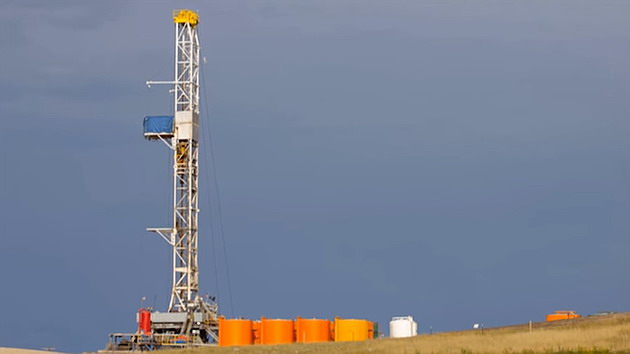12 Pros And Cons Of Natural Gas

Natural gas is one of the cleanest fossil fuel available today on the planet that can help our civilization reduce the level of greenhouse gas emissions released into the atmosphere when we use this fuel for electricity generation, heating and cooking.
In addition, if you are a student who is planning to write a paper on natural gas and its definition type”do my biology homework” and find out more information on tips to write a paper on any topic including one related to natural gas.
What is Natural Gas and What Are the Pros And Cons Of Natural Gas?
Natural gas represents one of the three sources of fossil fuels used on our planet to generate electricity and heat, and even if some researchers consider natural gas as a cleaner energy source (cleaner than coal and oil because produces a smaller amount of emissions when burning) we can’t consider this fuel as as a green and clean one.
Due to the fact that the human society is moving towards a cleaner future where the polluting energy sources such as coal and oil will be used less and less, we have to increase the use of “low-carbon energy sources” such as natural gas.
Natural gas can become this way a main source of low-carbon power on the planet, that along with the renewable energy sources such as solar, wind, hydro, geothermal and biomass would reduce the level air, soil and water pollution on the planet.
To better understand why natural gas can be used as a transitional fuel for our socity (transition from a society based on fossil fuels to a society based on low-carbon energy and renewables, I will show you that are the pros and cons of natural gas.
Pros of Natural Gas
What are the advantages of using natural gas as an energy source today?
1. Releases A Smaller Amount Of Harmful Emissions Compared To Other Fossil Fuels
Natural gas is known as a “cleaner energy source” because while burning, it releases 45% less carbon emissions than coal, and 30% less carbon emissions than oil.
Due to this property of producing less pollution compared to coal and oil, natural gas is considered the fossil energy source that will successfully replace coal and oil as the main energy source on the planet in the following decades.
2. Represents A Cheaper Energy Source
In many countries, there are drivers that are using cars with engines running on natural gas because this energy source is cheaper than oil.
Besides the fact that natural gas is cheaper at the pump compared to gasoline or diesel, the cars with engines running on natural gas are more efficient.
Natural gas is also used for heating and cooking because is an affordable energy source and releases less harmful emissions into the environment.
3. Is An Abundant And Accessible Energy Source
Today, there are about 6,879 trillion cubic feet (Tcf) of world reserves of gross natural gas that were already proven, from which about 2,355 trillion cubic feet (Tcf) of technically recoverable resources of dry natural gas are located in the U.S. (source: EIA.gov).
Natural gas is a finite source of energy (exactly like coal and oil), but because natural gas was not used as the main energy source on the planet by now, and there are many other sites with reserves of natural gas that are undiscovered yet, we consider that this energy source is capable of successfully replace coal and oil as the main energy source on the planet for the following two or three decades.
4. Technology Used To Extract Natural Gas Is Available Worldwide
The technology used to extract natural gas is very similar to the technology used to extract oil, and they go hand in hand in some extracting sites.
5. Can Be Easily Transported
After being extracted from the land or sea subsurface, natural gas is not ready for transportation yet, and it must be treated to avoid any possible damage to the systems.

Heavy-duty liquefied natural gas (LNG) vehicle.
Different admixtures are coming out of the well along with natural gas during the extraction process, and these must be cleaned several times at the well outlet, and sometimes even during the transmission through pipelines at compressor stations.
However, once cleaned, natural gas can be easily transported through pipelines and via large ships (tankers) on the entire planet.
6. Is Widely Used In The Chemical Industry
Natural gas is used in the chemical industry to produce plastics and different chemicals.
Is also used to produce fertilizers for agriculture, and is considered a cheap energy source to produce hydrogen.
Cons of Natural Gas
Natural gas has a pretty large number of drawbacks.
1. Is A Fossil Resource that is Limited
Even if natural gas is considered an energy source that releases less harmful emissions compared to coal and oil, natural gas is still a polluting energy source that can be used only to replace more harmful fossil fuels (for the environment) for a future with less emissions.
2. Burning Natural Gas Increases The Greenhouse Effect On The Planet
Burning natural gas (to generate electricity, heating, in the engine of a vehicle or simply for cooking) will release harmful emissions such as: carbon dioxide (CO<sub2), carbon monoxide (CO), nitrogen oxides (NOx), and negligible amounts of mercury, sulfur and particulates.
The leakage of methane (a primary component of natural gas), which is 34 times stronger than CO<sub2 at trapping heat over a period of a century and 86 times stronger than CO<sub2 over a period of two decades, is usually produced during extraction from wells and during transportation through pipelines.
3. Is A Limited And Unsustainable Resource
Natural gas and its fellow fossil energy sources (coal and oil) are representing limited sources of energy and will be depleted somewhere in a not so distant future.
Natural gas is a non-renewable and a non-sustainable energy source, and even if today we are planning to use natural gas as a replacement for coal and oil because is considered “cleaner”, it is more than obvious that natural gas will be used only for a few more decades on the planet, and will be replaced by renewable energy sources by the mid of the century.
4. Is A Highly Flammable Energy Source
Unlike coal and oil (not to mention the renewables), natural gas is a colorless, odorless and tasteless gas that can cause huge damage when exploding.
Usually an odorant is added to it to ease the detection capability, but even so, its domestic use causes from time to time accidents (which can lead to loss of human life and huge financial losses due to negligence).
5. Extracting Natural Gas Through Hydraulic Fracturing Harms the Environment
Natural gas exactly like oil is extracted from deposits located deep underground through drilling wells.
Hydraulic fracturing or simply fracking is a relatively new technological process used for the extraction of oil and gas, and represents a well stimulation technique in which the rock is fractured by a highly pressurized liquid.
Sadly, extracting natural gas through hydraulic fracturing is causing damage to the environment because it could lead to drinking water contamination (the highly pressurized liquid contains dangerous chemicals) in the area of the well and earthquakes due to the fracturing of underground rock.
6. Requires An Expensive Pipeline Infrastructure
Natural gas is transported for long distances through expensive pipelines secured by expensive systems (the gas is highly flammable), and any pipeline leakage leads to extra running costs.
The transportation of natural gas through land and sea requires specialized tanks which are not cheap.
As you may see, natural gas as a fossil source of energy has its advantages, but also many disadvantages.

Natural gas pipeline burning in California.
Conclusion
Natural gas it is considered today a cleaner energy source if compared to coal and oil, and would successfully replace these fossil fuels as the main energy source of fossil power on the planet for the next decades.
However, natural gas will ensure the main source of power on the planet only until renewables will be able to dominate the energy mix of the planet.







